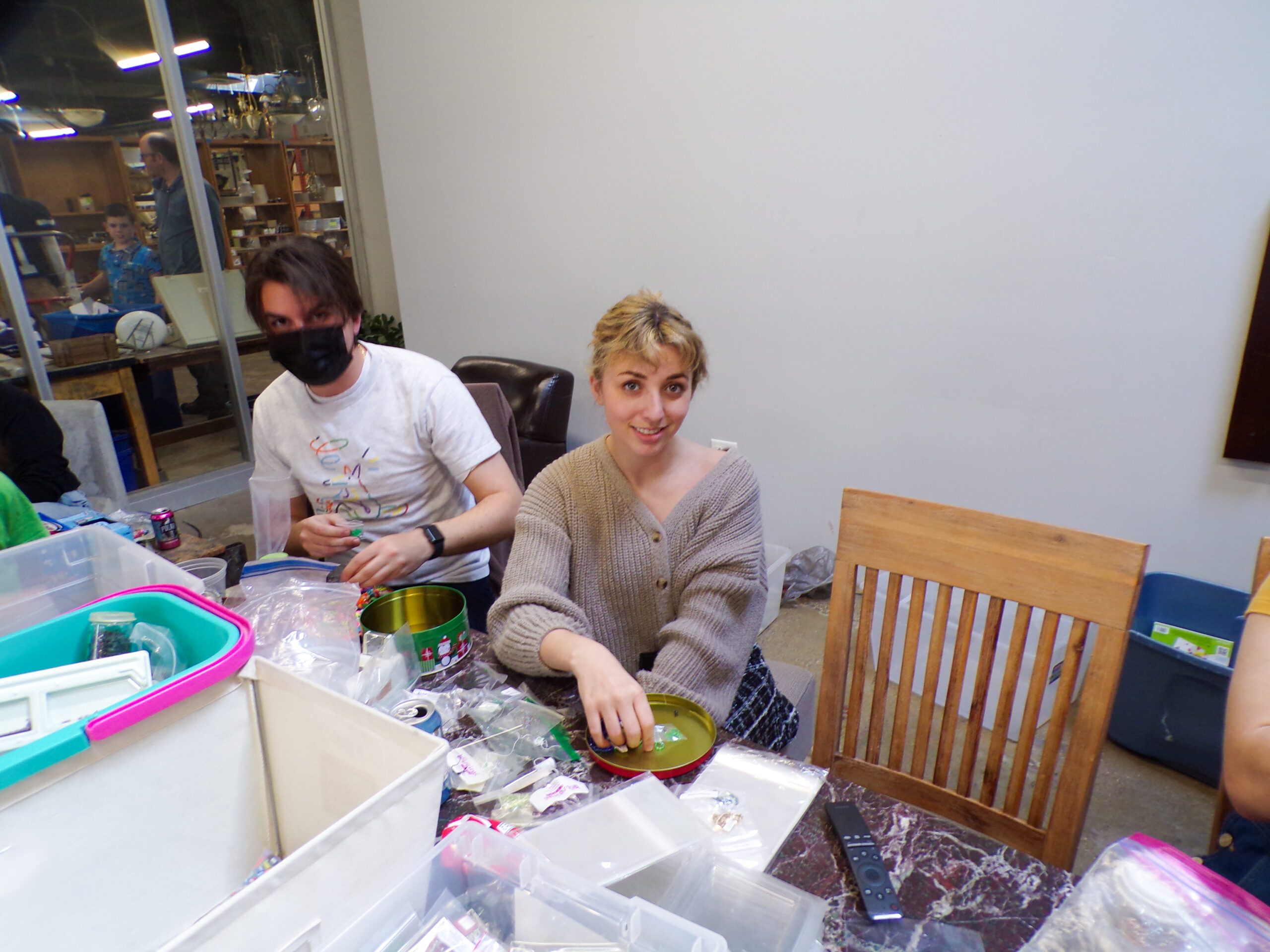Writer Julia Soeder reflects on her eating disorder that afflicted her in high school.
Nine hundred calories. This is below the amount of calories a nonactive 3-year-old female should be consuming, according to the National Institute of Health (NIH). Nine hundred calories is what I, a then-17-year-old female varsity athlete, was living off of for over a year.
Feb. 27 to March 5, 2023 is National Eating Disorders Awareness Week, according to the National Eating Disorder Association (NEDA). An eating disorder is an illness that is linked with severe disturbances in eating behaviors and related thoughts and emotions, according to the NIH.
When I was in the thick of my suffering, I spent my days plagued by thoughts of food. The less food you eat, the more you think about it. Every part of my day was spent pre-planning my next meal, like an addict needing a fix. But the euphoria gained from eating the food my body so desperately needed was crushed by an all-consuming guilt that I was doing something wrong.
My relationship with food was not always so volatile. When embarking on the all-important school lunch trades, I was far more concerned about getting the right Hostess snack than if my body was getting the nutrition it needed.
By middle school, any form of a well-balanced meal was gone. I lived off of heavily processed foods, fruits and vegetables becoming a rarity in my diet. I would come home from school every single day and binge out on copious amounts of sweets, from ice cream to pancakes to brownies. In other words, I was living the dream. But as soon as puberty started, my body was not plowing through these snacks like it used to, and I began to see the effects they were having on my body.
High school, more specifically the spring of my sophomore year, is when I began practicing habits that would lead to my eating disorder. It was the start of the Covid-19 pandemic and I had nothing but time on my hands.
Things started off small, cutting out certain foods like pancakes and Oreos, and then began to build. I began working out everyday, with fitness guru Chloe Ting becoming a staple in my routine. Her videos, meant to target young girls dealing with body image issues were riddled with inaccuracies.
These habits, on their face, seemed completely normal – healthy even. But no one knew what was happening behind closed doors. It was during this time that I would begin consuming less than 1,000 calories on a daily basis. I was also burning upwards of 500 to 600 calories a day with soccer practice and working out. The proper amount of calories needed for a person my age and activity level should have been 2,400 calories, according to NIH. My body was crying out for the food I was refusing to give it.
I took my habits to the extreme, obsessively counting out every single calorie that went into my body. My biggest fear became foods like pancakes, nachos and burgers. I would stand in front of my kitchen cabinets, staring at the oodles of sweets my mother had bought and calculate whether or not I was able to have a cookie that day.
“Maybe if I skip breakfast, then I can have a cookie after dinner,” I would tell myself. “If I run an extra mile, then I can have breakfast.”
This continued on for months with no one noticing any real problem, including myself. If anything, my behavior was being reaffirmed by those around me who noticed the weight loss and told me I looked great.
My mother would be the first person to have an inkling that something was not right, as mothers do. And as moody teenage daughters typically do, I hid everything and denied any accusations about not eating enough or needing rest.
I became extremely anxious, something that I had never suffered from before. I was drowning in worries surrounding calories and craving my next meal. I knew this was not healthy or sustainable, but I did it anyway, because in all honesty, I liked how it made me look.
Eating disorders don’t just destroy your body, they can be detrimental to relationships, too. I would find myself becoming irrationally angry at anyone who would comment about whether I was eating or not. I vividly remember when a teammate of mine handed me a granola bar and told me to eat it. I stood there trying to shove it back into her hands, because if I ate it, I would be going over my calorie limit for the day.
I cried because my teammate tried to get me to eat a granola bar that day.
It is extremely difficult to pull yourself out of this hole. Getting myself to eat was only half the battle. It was getting myself to believe that I was worth more than the food on my plate – that was truly the biggest struggle I had to face.
My family and friends would be the ones who would ultimately help me out of the seemingly bottomless pit I had buried myself in. They were like lanterns in the dark, guiding me back to a life where food was not my sole purpose. It is my hope that everyone who struggles with disordered eating is given the same support as I once was. Because this support can mean the difference between life and death.
Thirty million Americans suffer from eating disorders, according to NEDA. In the U.S. alone, as many as one in ten young women suffer from an eating disorder, according to the American Academy of Child and Adolescent Psychiatry.
Knowing how to help someone who is suffering from an eating disorder is extremely hard, especially given how taboo the topic of weight can be. It is important to realize that many of those who suffer from eating disorders do not lack the understanding that what they are doing is unhealthy – many of them are aware. What they really need is someone ready to give support during the lows and celebrate during the highs.
Take some time this week to reach out to those around you who are struggling. A simple message of love can go a long way for those fighting to find it within themselves.
If you are facing a battle this week, know that you are worth so much more than a body.
What makes those around you love you is not the size of your waist or the weight on the scale, it is the soul inside you.
If you or someone you know is in need of support, resources or treatment for struggles with an eating disorder, a helpful resource could be the NEDA Helpline.












